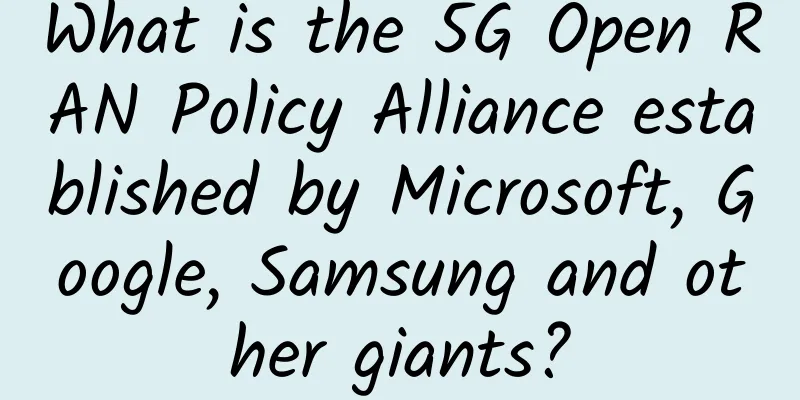Is it a major setback or a cold shower? What happened to 5G?

|
Because South Korea postponed the commercialization of 5G, some media outlets used the title "5G has suffered a major setback" to publicize their pessimism about 5G, and even some industry technology experts published articles saying that 5G is an outdated technology. Although some communication industry experts have made tit-for-tat rebuttals, the future of 5G has already been questioned. In addition, combined with the verbal storm caused by the lawsuit in the United States over the authenticity of 5G, and the cautiousness of the three major domestic operators in 5G investment and construction, whether or not there is sufficient understanding of communication technology, it is inevitable to worry about the prospects of 5G. 1. Lack of terminals has become an important factor affecting 5G commercial use Although 5G has long been a hot topic at various large-scale exhibitions and a standard move for major equipment manufacturers and terminal manufacturers to promote their technical strength, the lack of 5G-related chips and terminals has become the biggest obstacle to its commercialization. So far, including the United States and South Korea, their so-called 5G commercialization is to convert 5G signals into a form that can also be achieved by fixed networks such as WIFI. The real mobile communication technology capabilities of 5G have not been reflected, let alone real applications. From the user's perspective, 5G has become an optional choice. Especially when there are technical experts in the communications industry analyzing the characteristics of 5G technology from the perspective of human-to-human communication, the theory that 5G technology is outdated has a market. The most direct way for the general public to experience new technologies is through application. If people cannot have an intuitive experience, then the public's credibility in technology will be greatly reduced. Even if the 5G signal is converted into WIFI, it is essentially not much different from the WIFI converted from high-bandwidth broadband. This is actually one of the important reasons that affect everyone's experience. At the beginning of 2018, Qualcomm and Huawei announced their 5G chips in a high-profile manner. At the end of 2018, at the China Mobile Global Partner Conference held in Guangzhou, many terminal manufacturers stated that they would launch mobile terminals that could be put on the market in the first quarter of 2019, but now it is less than a week away from the end of the first quarter. If 5G terminals cannot be put on the market as expected by manufacturers, there will definitely be various media expressing their pessimism about 5G. 2. Unclear application scenarios affect the 5G business ecosystem The 3rd Generation Partnership Project 3GPP defines three major 5G scenarios: eMBB, mMTC and URLLC. eMBB corresponds to high-traffic mobile broadband services such as 3D/ultra-high-definition video, mMTC corresponds to large-scale Internet of Things services, and URLLC corresponds to services such as driverless cars and industrial automation that require low-latency and high-reliability connections. Among them, eMBB mainly corresponds to human-to-human communication, while mMTC and URLLC mainly correspond to human-to-object and object-to-object communication. From the perspective of human-to-human communication, 4G is enough. In the 4G era, the development and prosperity of mobile Internet has indeed changed people's lives. Many people have doubts about the convenience that 5G can bring to ordinary users, whether it is "forced consumption upgrade" or whether it is really necessary. As for the social change goal aimed at by 5G, from the current needs of mass production, there may not be an urgent need. Moreover, from the perspective of production enterprises, although they are happy to see and enjoy efficient, convenient and economical, they will most likely back off if they spend huge amounts of money in the short term, especially when the current economic situation is not prosperous enough. From the perspective of operators, promoting social mass production into the era of intelligent manufacturing is certainly one of their responsibilities, but it is impossible to achieve it with the power of operators alone. Although various incentive policies have been introduced at the national level and relevant industrial support funds have been established, except for obvious Internet companies with deep pockets such as BATJ, real manufacturing companies, even if they have the desire to upgrade to intelligent manufacturing, will inevitably not escape the reality of funds. If this is the case, weak demand will inevitably lead to operational pressure on the supply side. This transmission will gradually amplify public opinion. In view of the current stage of 5G, China Mobile, as the leader of the domestic communications industry, has assumed the responsibility of innovation and exploration in the development of the 5G industry, and has timely launched the "5G+ Plan", extending its "big connection" strategy through 5G+4G, 5G+AICDE, and 5G+Ecology, and exploring the future commercial applications and ecological chain construction of 5G. 3. The reluctance of domestic and foreign operators to invest has affected social confidence For some time, the social environment in which 5G is located has been relatively complex. There are both political games for the global leading advantage of 5G and political suppression of the technological hegemony of Huawei and ZTE. Even though the countries that have announced the commercial use of 5G are seen as gimmicks that intend to compete for the world's top position, the sanctions and suppression of ZTE and Huawei by the United States have aroused the domestic belief in the victory of 5G global leadership to a large extent. Supporting the development of domestic high-tech companies such as ZTE and Huawei has, to some extent, become a symbol of the rise of my country's science and technology. Although there are conspiracy theories in society that 5G is a coercion of operators by equipment manufacturers, no one can refute the technological progress of 5G, even if the progress is limited. The top leaders have listed 5G commercialization as a key issue in economic work in 2019. The regulatory authorities are also constantly releasing information to accelerate 5G commercialization. Equipment and terminal manufacturers are also increasing their testing, and the three major operators are also constantly conducting various experiments and applications. However, insufficient investment in 5G construction has become a common practice among operators, both abroad and domestically. Taking domestic operators as an example, at the 2018 performance communication meeting, the total capital expenditure on 5G stated by the three major operators did not exceed 40 billion yuan. Among them, the head of China Unicom said, "The G in 5G is the G of opportunity, and the 5 is to let you hold your pockets tight. 5G requires huge investment, which is completely different from 4G, 3G, and 2G. The investment is huge. After a year of 5G experiments, we will decide whether to invest in scale next year. If there is no 5G investment opportunity next year, we will increase dividends." Although this is based on the maturity of 5G technology, unclear application scenarios, and the completeness of the production chain, the top leaders are actually not optimistic about 5G in the short and medium term. This sentiment, after being widely reported by the media, will affect the confidence of the demand side in the future. A well-known media in the communications industry summarized the current situation of 5G as follows: "Although the entire industry chain and even the world are eager to try out 5G on the eve of large-scale commercial use, the entire industry should not be "overexcited" but should return to rationality on the basis of active investment, because we still have many problems to solve." Of course, it is necessary to be calm and rational in dealing with 5G, and faith and confidence are even more indispensable. Even if there are setbacks, now is the dawn of a bright future. |
>>: Data Center Network Security Checklist Must-Haves
Recommend
zgovps: US/Japan/Netherlands/Germany VPS with annual payment starting from $12.9, optional CN2 GIA/AS9929/CMIN2 lines
zgovps is a Chinese hosting company established i...
Maxthon Hosting: Hong Kong VPS monthly payment starting from 40 yuan, mobile CMI large bandwidth, optional CN2 line
Friends who use mobile networks can pay attention...
Baidu can't stand it
Lao Lao Noodles Source: https://www.nowcoder.com/...
5G+IoT, why will it usher in a completely different era of “operator of everything”?
In the previous article "Entering the Billio...
In 2024, the core network will usher in new opportunities!
In today’s article, let’s talk about the core net...
What is edge computing and how will it impact businesses?
The process of transferring data remotely involve...
Huawei and Chongqing jointly build cloud-based intelligent industries at the first AI Expo
[51CTO.com original article] On the afternoon of ...
From DoH to ODoH, operators can no longer hijack DNS
Not long ago, 360, which has always held high the...
BGPTO: 50% off on Singapore dedicated servers, E3-1230v3/16GB/480G SSD/10M only 325 yuan
BGPTO is a foreign independent server sales site ...
PoE Basics: Do You Really Understand PoE?
By transmitting both data and power over the same...
Why do base stations need to go to the sky?
Over the past few decades, mobile communication t...
What changes will 6G bring by 2030?
We are in the midst of a great digital wave. Inno...
Let's talk about the communication protocol I2C subsystem
I2C Transfer Definition of timing To explore the ...
Sharktech cloud server 35% off annual payment starting at $33, 2G memory/40G hard drive/4TB traffic/multiple computer rooms available
Sharktech, also known as SK or Shark Data Center,...









